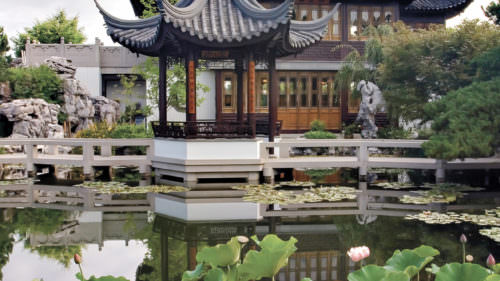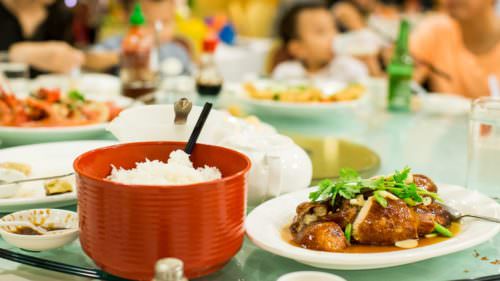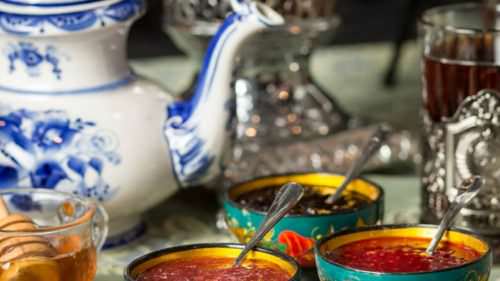Lan Su Chinese Garden in downtown Portland is more than just a cool, green escape from city streets. This tranquil oasis is filled with over 250 species of indigenous Chinese plants, orchids and lotuses, a waterfall and a koi-filled lake. It’s a place to savor a cup of oolong and a fluffy steamed bun in the teahouse, and enjoy the 800-plus ongoing and one-time art, music and cultural programs for the whole family, held almost every day of the week. Here are a few ways to fully recharge your mind, body and spirit at Lan Su.
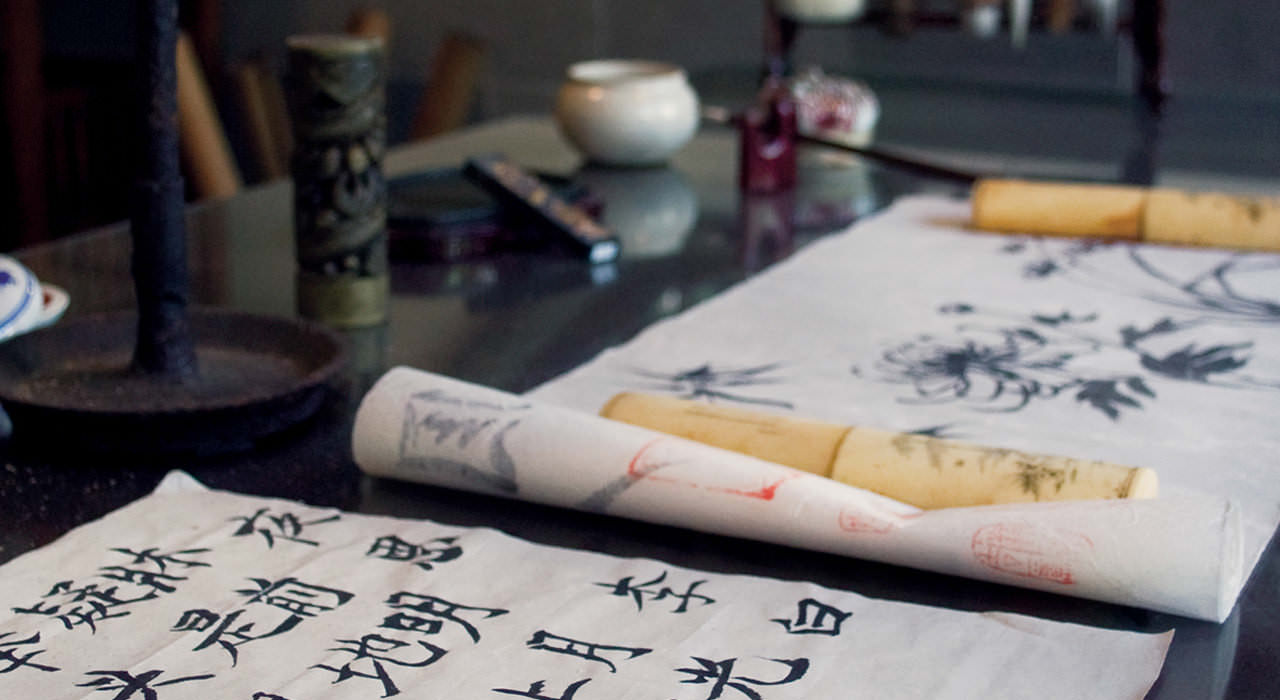
Find your artsy side
The garden’s rotating exhibits offer a fresh entry for visitors all year long. Celebrate Our Stories: AANHPI Heritage Month runs through May and is a visual feast of performers and artists paying homage to the history, traditions, and arts that make up the cultural tapestry of Oregon’s Asian American Native Hawaiian & Pacific Islander communities.
Another thousand-year-old art form — calligraphy — is a staple of Chinese gardens, and an important piece of Lan Su’s events. Drop by one of the free Sunday afternoon calligraphy demonstrations and let a classically trained scholar show you how it’s done. You can also learn about the ancient art while sipping tea at one of the Calligraphy in the Teahouse events on Thursdays.
The garden’s Monday afternoon Chinese brush-painting demonstrations are yet another treat. On Fridays and Sundays, the fan brush-painting demonstrations let you take a sample of the revered Chinese art home with you. Choose from the painted silk or paper hand fans with personalized calligraphy messages available for purchase — a perfect souvenir or gift.
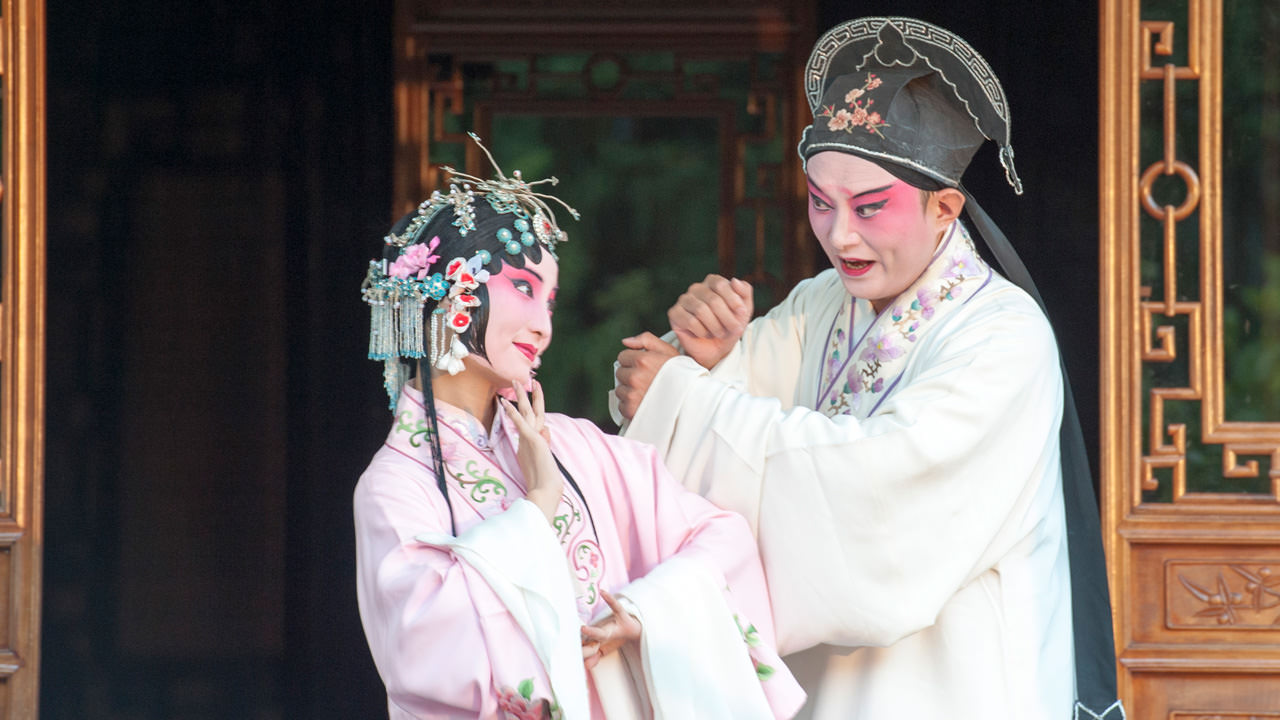
Music from Near and Far
As you stroll through the shady pavilions, chances are you’ll hear the high-pitched sounds of a guzheng (plucked stringed instrument) or other classical Chinese instrument drifting down from one of the Music in the Teahouse shows, but the garden also offers a slew of stand-alone international concerts. If you’re in the mood for colorful costumes and high drama, stop by the garden for a Cantonese opera. Witness dramatic portrayals of love, kidnapping and treason, all in the span of the 30-minute evening performance.
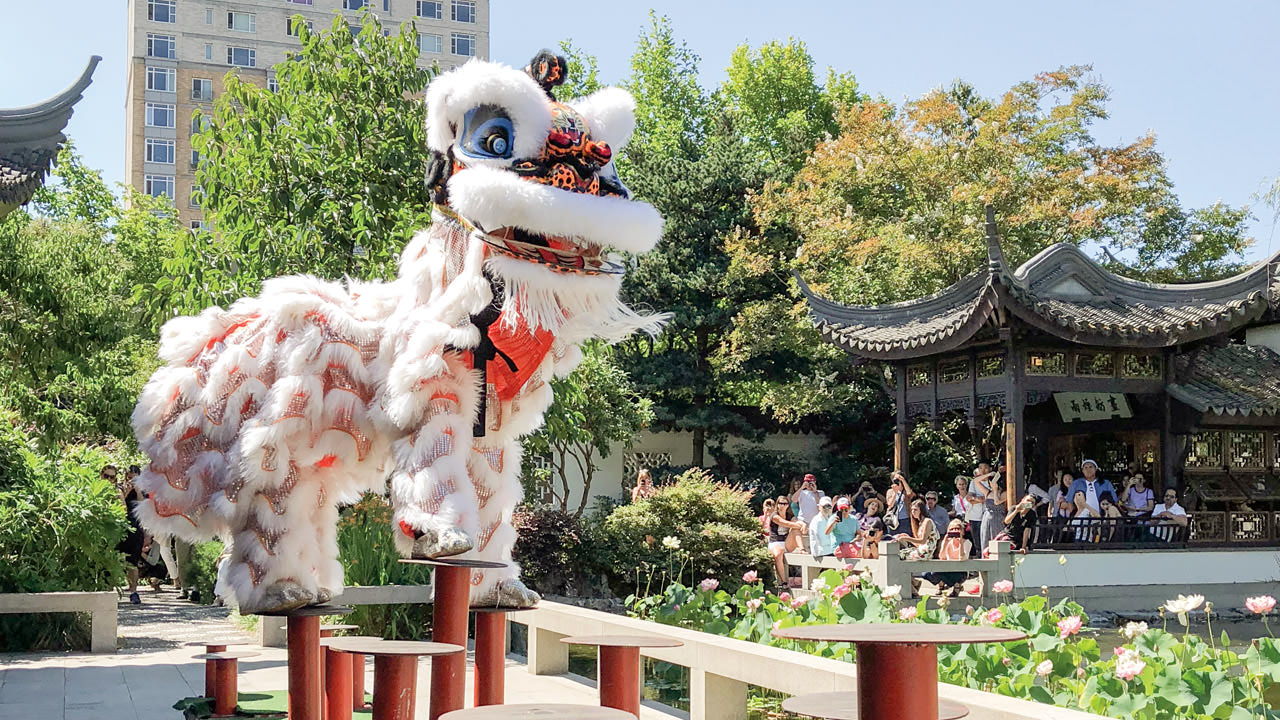
Feel the Cultural Vibe
For even more drama — and some amazing acrobatics — don’t miss the awe-inspiring Jong lion dance. This is different than the traditional lion dance in that the daring dancers lunge and jump on jongs (raised pillars).
On the first Friday of each month, the garden’s Chinese Conversation Circle teaches visitors basic Mandarin phrases and covers curious subjects such as lantern riddles and tea arts. Upcoming topics include Chinese calligraphy and the Mid-Autumn Festival. Drop in anytime during a session to chat and learn.
Another drop-in activity you don’t want to miss — the first-Sunday sessions of the Chinese board game, wei-chi, or Go, played by the Portland Go Club. This game of strategy and skill has been played for centuries and you’re encouraged to watch and ask questions, and even to take part.
If you’d like to find your spiritual center, try one of the garden’s morning movement classes. Beijing Internal Kung Fu classes are held Tuesday mornings and Ba Gua Zhang, a martial art that focuses on internal energy, is held every Wednesday. On Friday mornings, wake up your body with Wild Goose Qigong. This ancient Taoist art strengthens your inner energy — your qi — with movements that mimic the wild goose, a revered animal in Chinese symbolism.
The Autumn Moon Festival is second only to Chinese New Year in cultural importance, and the garden celebrates it full force. Enjoy the day of lion dances, storytelling, Chinese folk art, calligraphy and family crafts. When the moon rises, nibble on sweet mooncakes (a pastry filled with date paste and smashed beans), and gaze up from the garden’s Moon Locking Pavilion. It’s believed the moon’s perfectly round shape symbolizes family unity, and there’s no better way — or place — to celebrate.
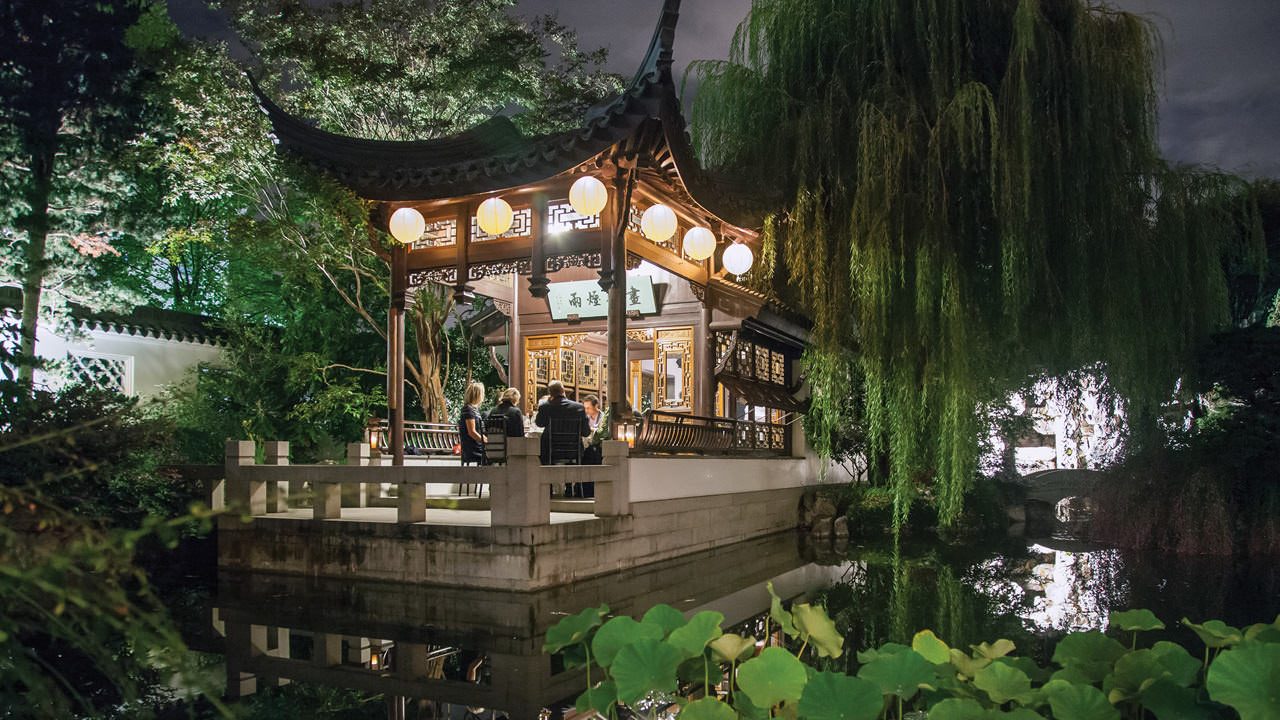
If you go:
Unless otherwise noted, all of Lan Su’s events during regular hours are free with your admission or membership. The garden is very child-friendly — kids will especially love watching the koi in the lake and identifying the flowers from a handy guide. The Garden Shop offers ample souvenirs such as teapots and wei-chi sets. The garden is accessible using a stroller or wheelchair. The restrooms are ADA-accessible, and the tea house has a lift.

